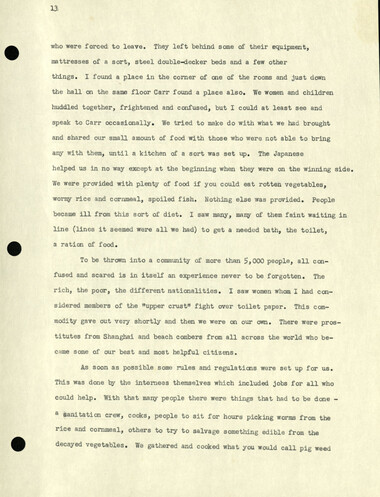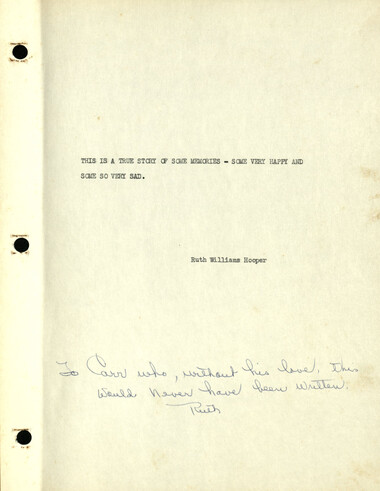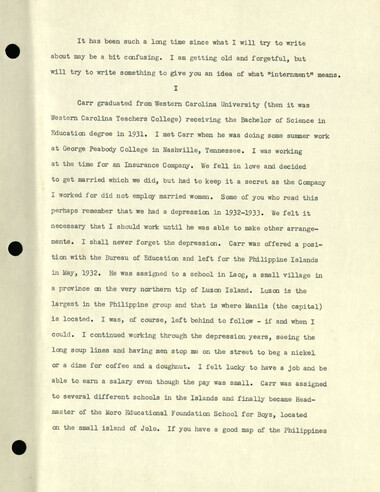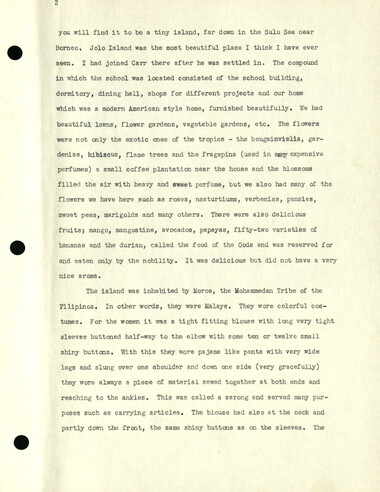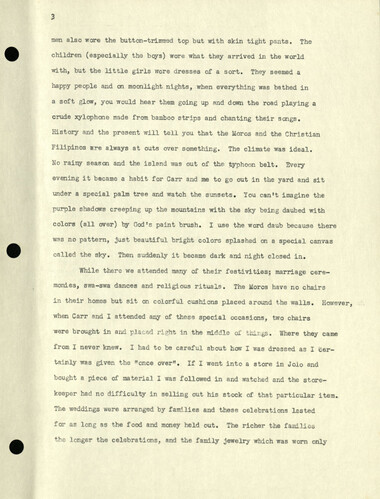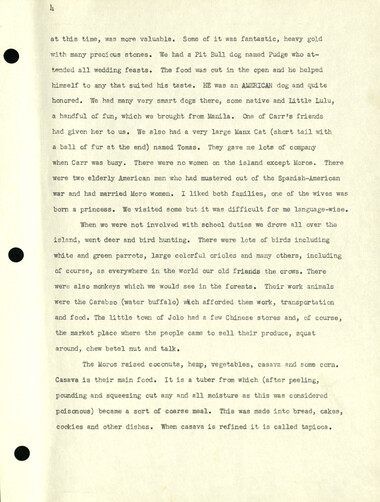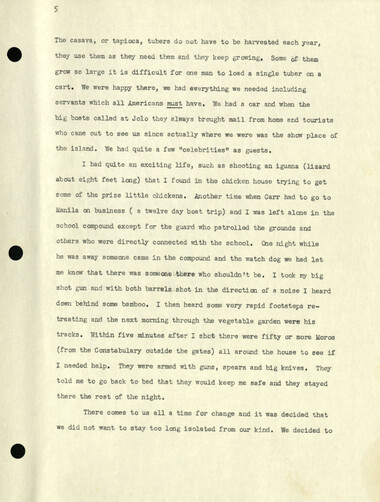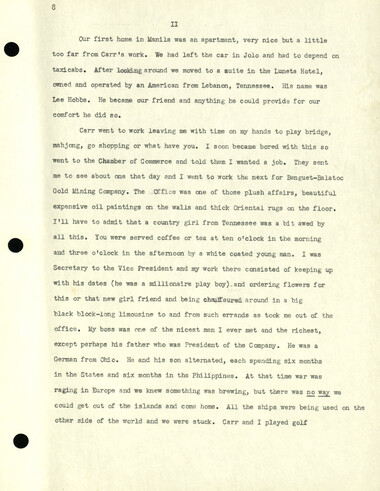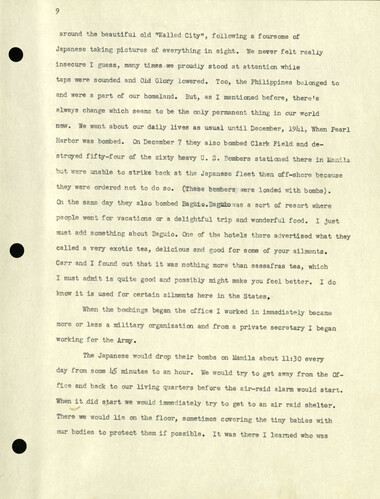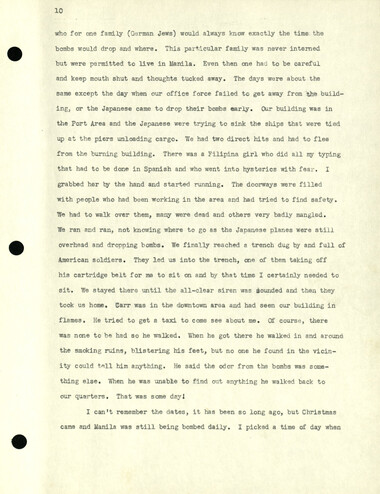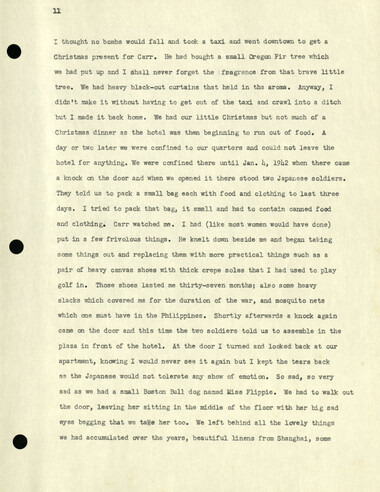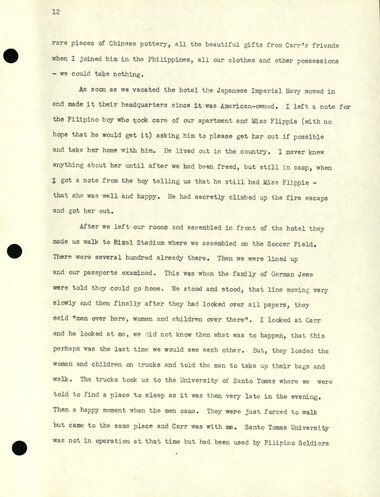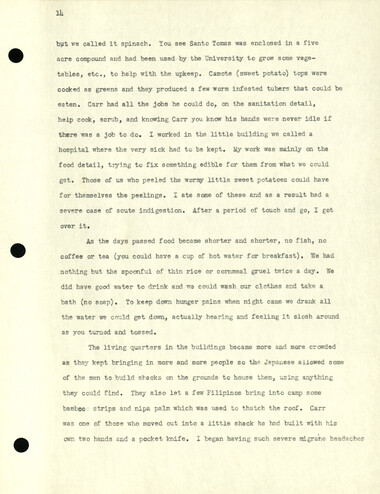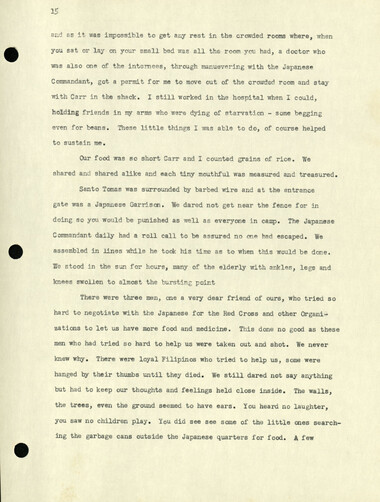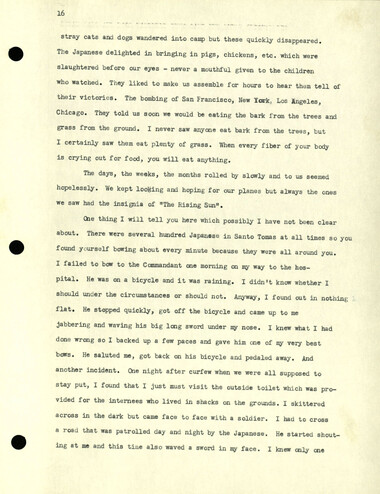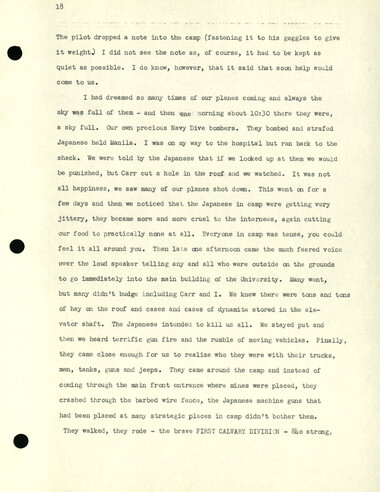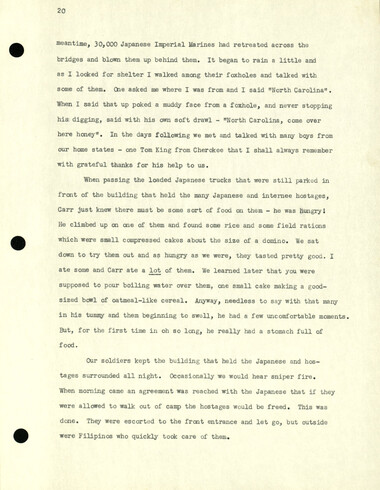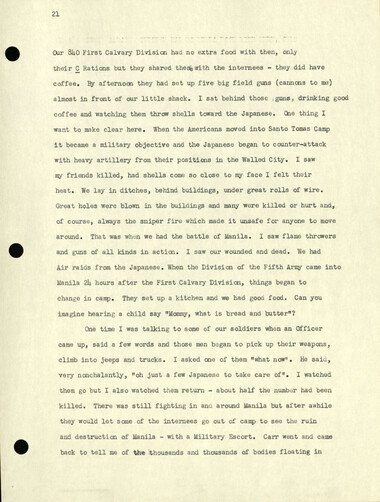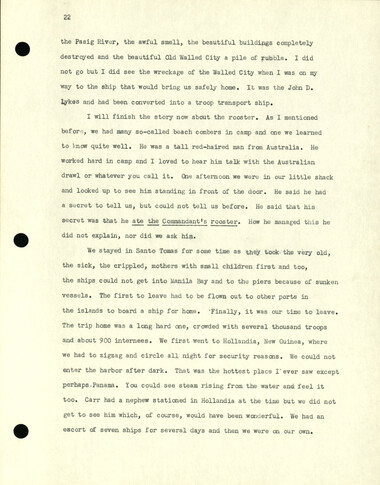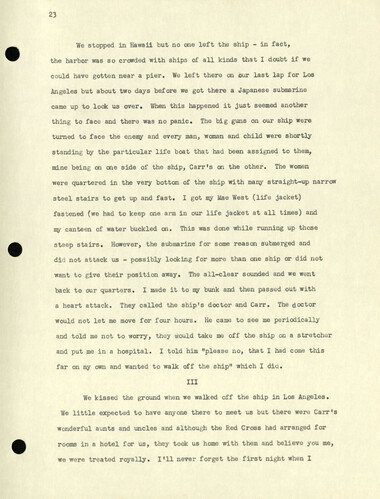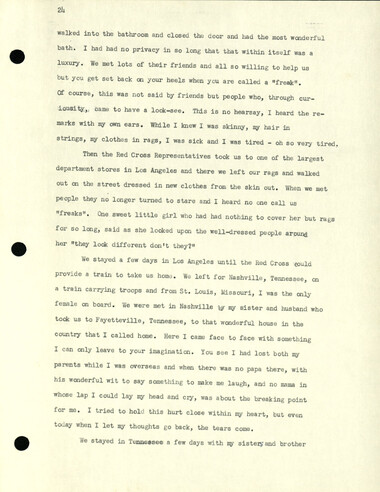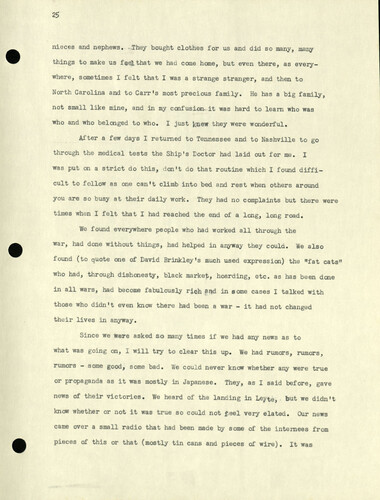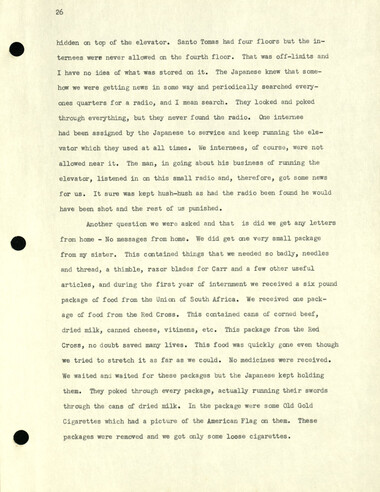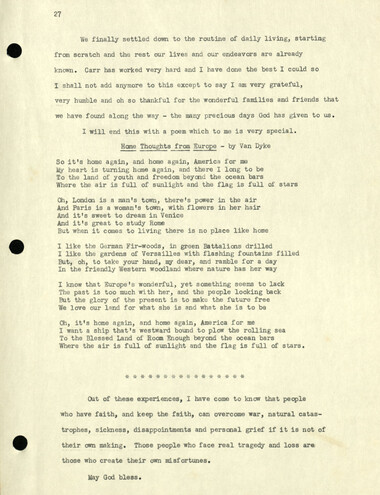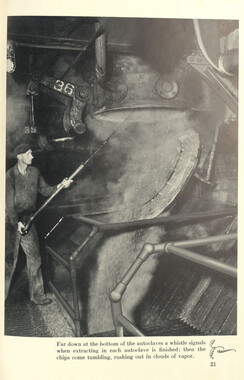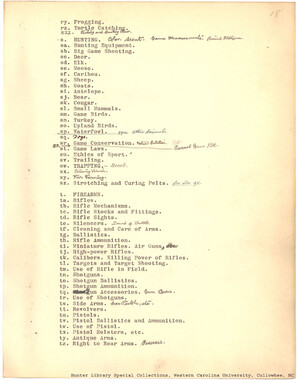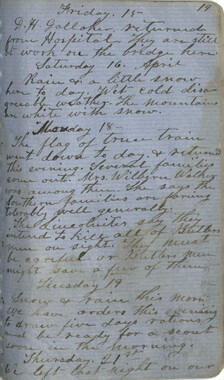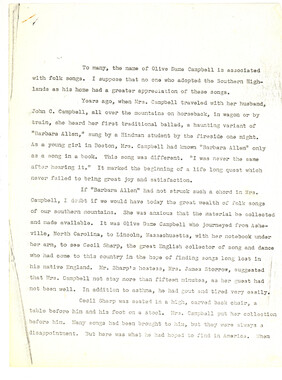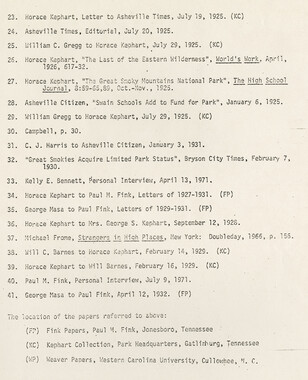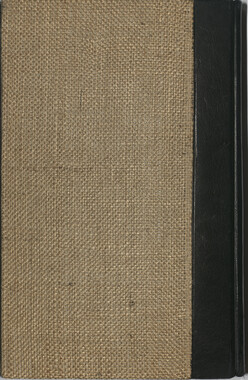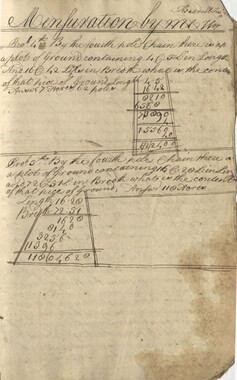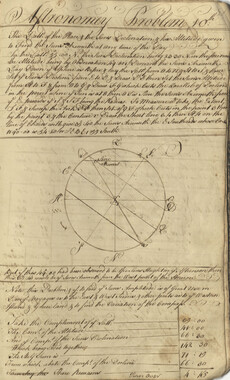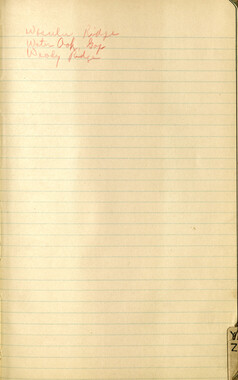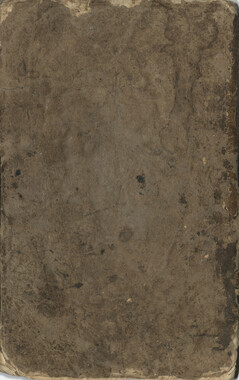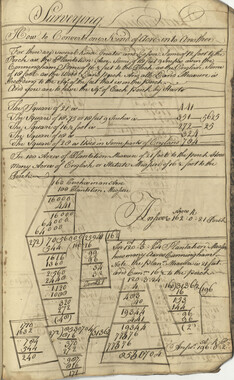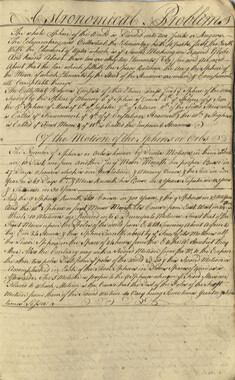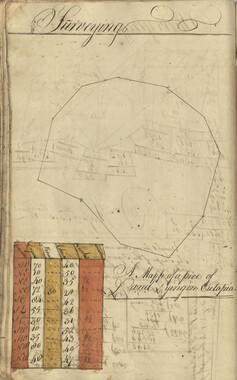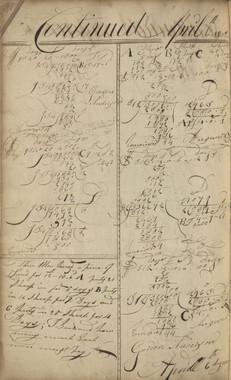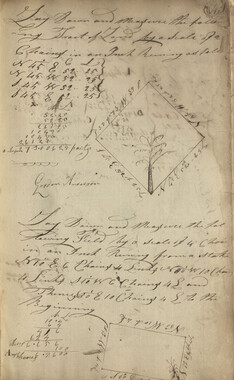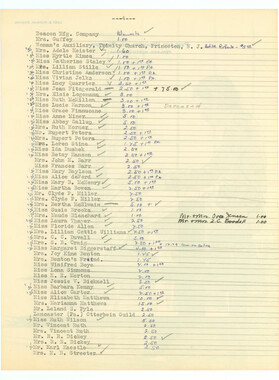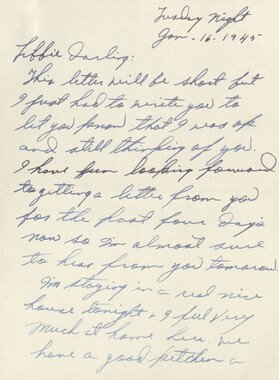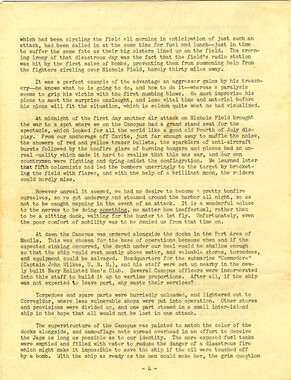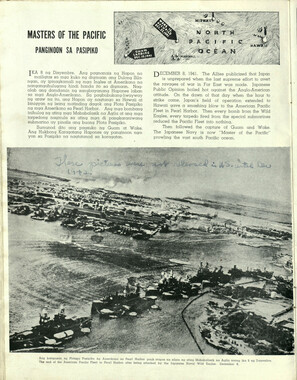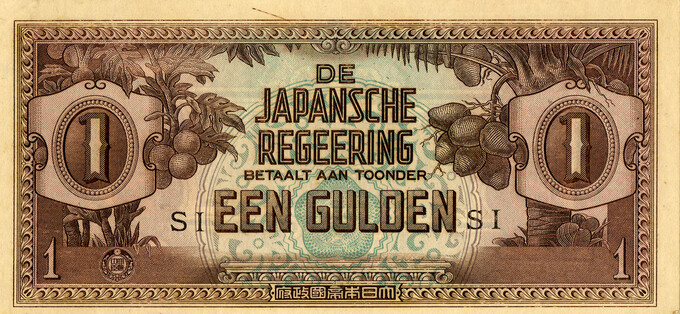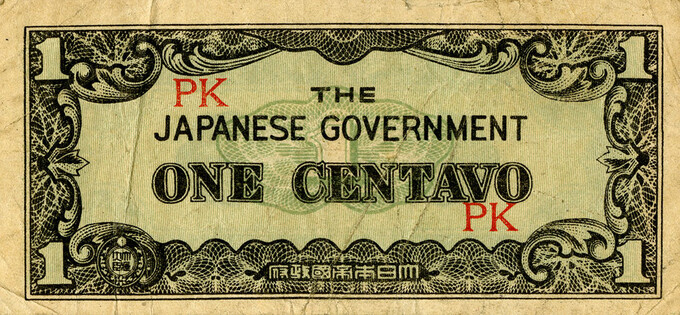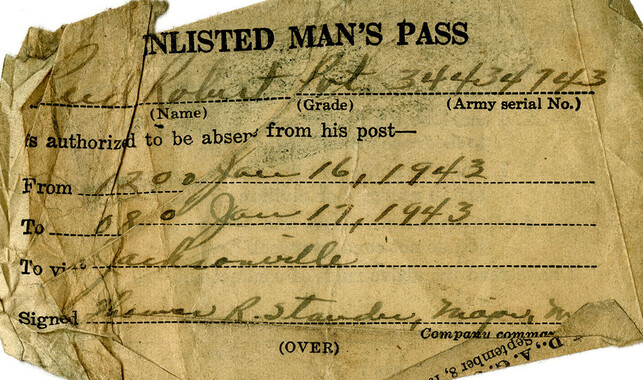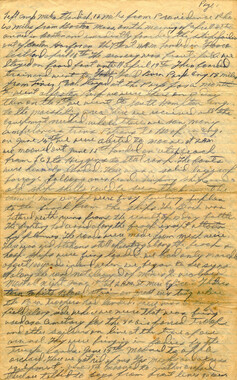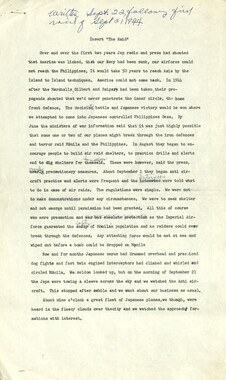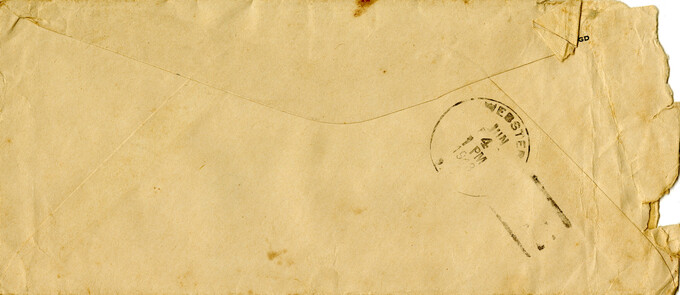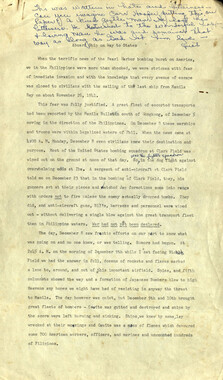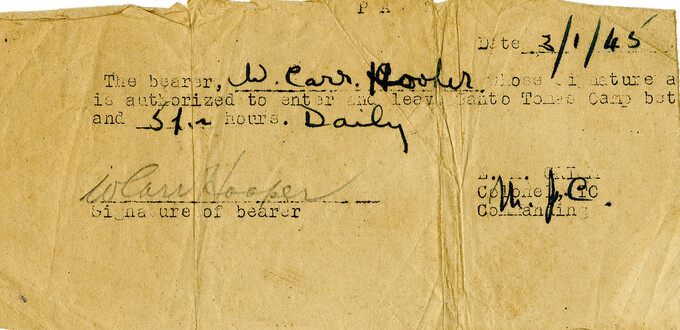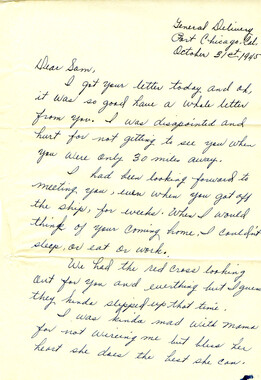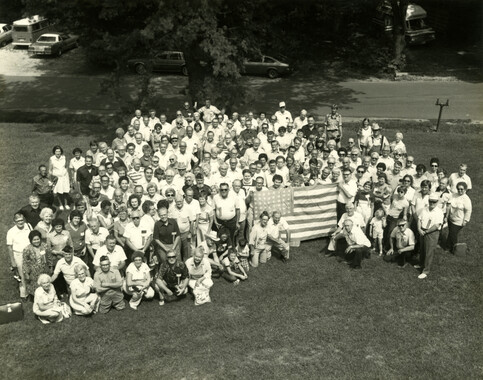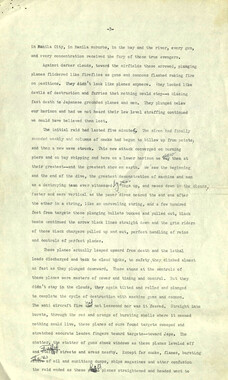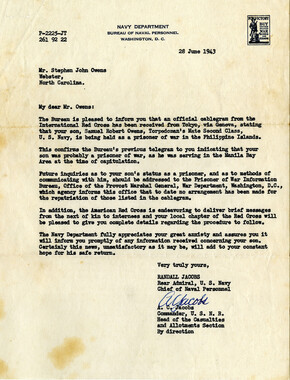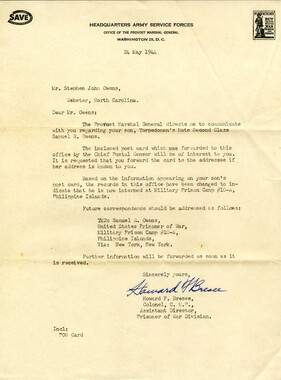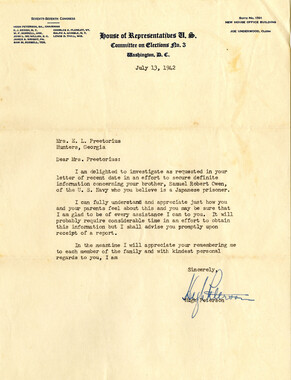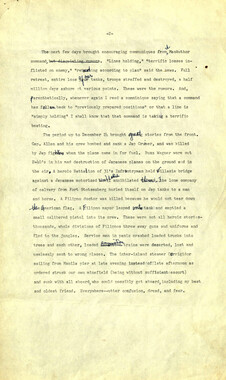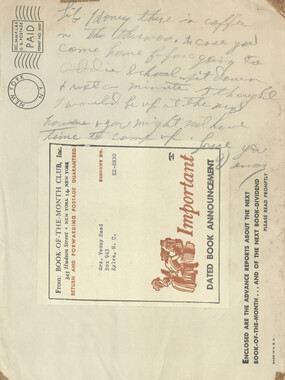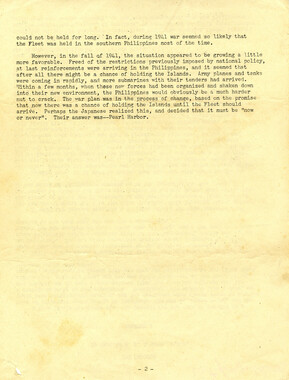Western Carolina University (1)
View all
- World War II in Southern Appalachia (21)
- Canton Champion Fibre Company (0)
- Cherokee Traditions (0)
- Civil War in Southern Appalachia (0)
- Craft Revival (0)
- Great Smoky Mountains - A Park for America (0)
- Highlights from Western Carolina University (0)
- Horace Kephart (0)
- Journeys Through Jackson (0)
- LGBTQIA+ Archive of Jackson County (0)
- Oral Histories of Western North Carolina (0)
- Picturing Appalachia (0)
- Stories of Mountain Folk (0)
- Travel Western North Carolina (0)
- Western Carolina University Fine Art Museum Vitreograph Collection (0)
- Western Carolina University Herbarium (0)
- Western Carolina University: Making Memories (0)
- Western Carolina University Publications (0)
- Western Carolina University Restricted Electronic Theses and Dissertations (0)
- Western North Carolina Regional Maps (0)
University of North Carolina Asheville (0)
View all
- Faces of Asheville (0)
- Forestry in Western North Carolina (0)
- Grove Park Inn Photograph Collection (0)
- Isaiah Rice Photograph Collection (0)
- Morse Family Chimney Rock Park Collection (0)
- Picturing Asheville and Western North Carolina (0)
- 1940s (21)
- 1600s (0)
- 1700s (0)
- 1800s (0)
- 1810s (0)
- 1820s (0)
- 1830s (0)
- 1840s (0)
- 1850s (0)
- 1860s (0)
- 1870s (0)
- 1880s (0)
- 1890s (0)
- 1900s (0)
- 1910s (0)
- 1920s (0)
- 1930s (0)
- 1950s (0)
- 1960s (0)
- 1970s (0)
- 1980s (0)
- 1990s (0)
- 2000s (0)
- 2010s (0)
- 2020s (0)
- Cards (information Artifacts) (10)
- Manuscripts (documents) (5)
- Newsletters (2)
- Newspapers (2)
- Occupation Currency (1)
- Publications (documents) (2)
- Sheet Music (1)
- Aerial Photographs (0)
- Aerial Views (0)
- Albums (books) (0)
- Articles (0)
- Artifacts (object Genre) (0)
- Bibliographies (0)
- Biography (general Genre) (0)
- Clippings (information Artifacts) (0)
- Copybooks (instructional Materials) (0)
- Crafts (art Genres) (0)
- Depictions (visual Works) (0)
- Design Drawings (0)
- Drawings (visual Works) (0)
- Envelopes (0)
- Exhibitions (events) (0)
- Facsimiles (reproductions) (0)
- Fiction (general Genre) (0)
- Financial Records (0)
- Fliers (printed Matter) (0)
- Glass Plate Negatives (0)
- Guidebooks (0)
- Internegatives (0)
- Interviews (0)
- Land Surveys (0)
- Letters (correspondence) (0)
- Maps (documents) (0)
- Memorandums (0)
- Minutes (administrative Records) (0)
- Negatives (photographs) (0)
- Notebooks (0)
- Paintings (visual Works) (0)
- Pen And Ink Drawings (0)
- Periodicals (0)
- Personal Narratives (0)
- Photographs (0)
- Plans (maps) (0)
- Poetry (0)
- Portraits (0)
- Postcards (0)
- Programs (documents) (0)
- Questionnaires (0)
- Sayings (literary Genre) (0)
- Scrapbooks (0)
- Slides (photographs) (0)
- Songs (musical Compositions) (0)
- Sound Recordings (0)
- Specimens (0)
- Speeches (documents) (0)
- Text Messages (0)
- Tintypes (photographs) (0)
- Transcripts (0)
- Video Recordings (physical Artifacts) (0)
- Vitreographs (0)
- World War, 1939-1945 (21)
- African Americans (0)
- Appalachian Trail (0)
- Artisans (0)
- Cherokee art (0)
- Cherokee artists -- North Carolina (0)
- Cherokee language (0)
- Cherokee pottery (0)
- Cherokee women (0)
- Church buildings (0)
- Civilian Conservation Corps (U.S.) (0)
- College student newspapers and periodicals (0)
- Dams (0)
- Dance (0)
- Education (0)
- Floods (0)
- Folk music (0)
- Forced removal, 1813-1903 (0)
- Forest conservation (0)
- Forests and forestry (0)
- Gender nonconformity (0)
- Great Smoky Mountains National Park (N.C. and Tenn.) (0)
- Hunting (0)
- Landscape photography (0)
- Logging (0)
- Maps (0)
- Mines and mineral resources (0)
- North Carolina -- Maps (0)
- Paper industry (0)
- Postcards (0)
- Pottery (0)
- Railroad trains (0)
- Rural electrification -- North Carolina, Western (0)
- School integration -- Southern States (0)
- Segregation -- North Carolina, Western (0)
- Slavery (0)
- Sports (0)
- Storytelling (0)
- Waterfalls -- Great Smoky Mountains (N.C. and Tenn.) (0)
- Weaving -- Appalachian Region, Southern (0)
- Wood-carving -- Appalachian Region, Southern (0)
- Text (21)
- MovingImage (0)
- Sound (0)
- StillImage (0)
Memoirs of Ruth Hooper
Item
Item’s are ‘child’ level descriptions to ‘parent’ objects, (e.g. one page of a whole book).
-
-
who were forced to leave. They left behind some of their equipment, mattresses of a sort, steel double-decker beds and a few other things. I found a place in the corner of one of the rooms and just down the hall on the same floor Carr found a place also. We women and children huddled together, frightened and confused, but I could at least see and speak to Carr occasionally. We tried to make do with what we had brought and shared our small amount of food with those who were not able to bring any with them, until a kitchen of a sort was set up. The Japanese helped us in no way except at the beginning when they were on the winning side. We were provided with plenty of food if you could eat rotten vegetables, wormy rice and cornmeal, spoiled fish. Nothing else was provided. People became ill from this sort of diet. I saw many, many of them faint waiting in line (lines it seemed were all we had) to get a needed bath, the toilet, a ration of food. To be thrown into a community of more than 5,000 people, all confused and scared is in itself an experience never to be forgotten. The rich, the poor, the different nationalities. I saw women whom I had considered members of the “upper crust” fight over toilet paper. This commodity gave out very shortly and then we were on our own. There were prostitutes from Shanghai and beach combers from all across the world who became some of our best and most helpful citizens. As soon as possible some rules and regulations were set up for us. This was done by the internees themselves which included jobs for all who could help. With that many people there were things that had to be done – a sanitation crew, cooks, people to sit for hours picking worms from the rice and cornmeal, others to try to salvage something edible from the decayed vegetables. We gathered and cooked what you would call pig weed
Object
Object’s are ‘parent’ level descriptions to ‘children’ items, (e.g. a book with pages).
-
In this personal narrative Ruth Williams Hooper shares her experiences in the Philippines before World War II, of her time at Santo Tomas Internment Camp with her husband Carr Hooper, and of their return home. The camp, also known as the Manila Internment Camp, was run by the Japanese military during World War II and housed over 3,000 internees from January 1942 until February 1945.
-
-
World War II
